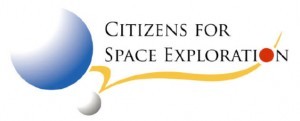Florida Space Update
- Launch Support Upgrades at KSC: NASA trumpets milestone in potential Mars travel: System reviews NASA announced new strides in the agency’s efforts with key contractors to develop the ground systems at the Kennedy Space Center to support future Space Launch System exploration vehicle launches of the Orion space capsule with astronauts on mission of deep space exploration. “Modernizing the ground systems for our journey to Mars also ensures long-term sustainability and affordability to meet future needs of the multi-use spaceport,” said Bill Hill, NASA’s deputy associate administrator of the Exploration System Development Division.
- ULA’s Vulcan Rocket: Reviewers approve early design work on new Vulcan rocket A new generation work horse rocket, the Vulcan Centaur, under development by United Launch Alliance, has completed its Preliminary Design Phase, and could launch for the first time in three years. Vulcan would replace the venerable Atlas V and Delta 4 rockets used for U.S. national security, science and commercial spacecraft missions.
- Green Propellant Launch from CCAFS: Spacecraft powered by ‘green’ propellant to launch in 2017 NASA’s Green Propellant Infusion Mission spacecraft could launch on a test flight from Cape Canaveral Air Force Station, Fla., in the spring of 2017, according to the agency’s contractor, Ball Aerospace & Technologies Corp. The nontoxic green propellant would fill the role normally assigned to highly toxic hydrazine during a series of orbital spacecraft maneuvers.
- Lynx Space Plane: Private Lynx space plane could take off in early 2017 XCOR’s Lynx suborbital winged launch vehicle could began suborbital flights next year, according to Harry van Hulten, the company’s director of flight testing and one of two test pilots for the company.
- RD-180 Engine: U.S. needs up to 18 more Russian rocket engines The Department of Defense will require 18 more Russian-built RD-180 rocket engines for United Launch Alliance Atlas V missions launching U.S. national security payloads, according to Deputy Defense Secretary Robert Work. U.S. lawmakers are seeking a domestic alternative to the RD-180 in response to Russian interference in the Ukraine.
Citizens for Space Exploration – a pro-space, taxpayer, grassroots advocacy group  (http://www.bayareahouston.com/content/c_s_e/c_s_e) – has traveled to Washington, D.C. the past 24 years to meet face-to-face with Members/staff of Congress to discuss the value of America’s investment in space exploration. In order to sustain that dialogue on a regular basis, Citizens distributes “Space Exploration Update” to Congressional offices on a weekly basis. The intent is to provide an easy, quick way to stay abreast of key human space exploration program and policy developments.
(http://www.bayareahouston.com/content/c_s_e/c_s_e) – has traveled to Washington, D.C. the past 24 years to meet face-to-face with Members/staff of Congress to discuss the value of America’s investment in space exploration. In order to sustain that dialogue on a regular basis, Citizens distributes “Space Exploration Update” to Congressional offices on a weekly basis. The intent is to provide an easy, quick way to stay abreast of key human space exploration program and policy developments.







